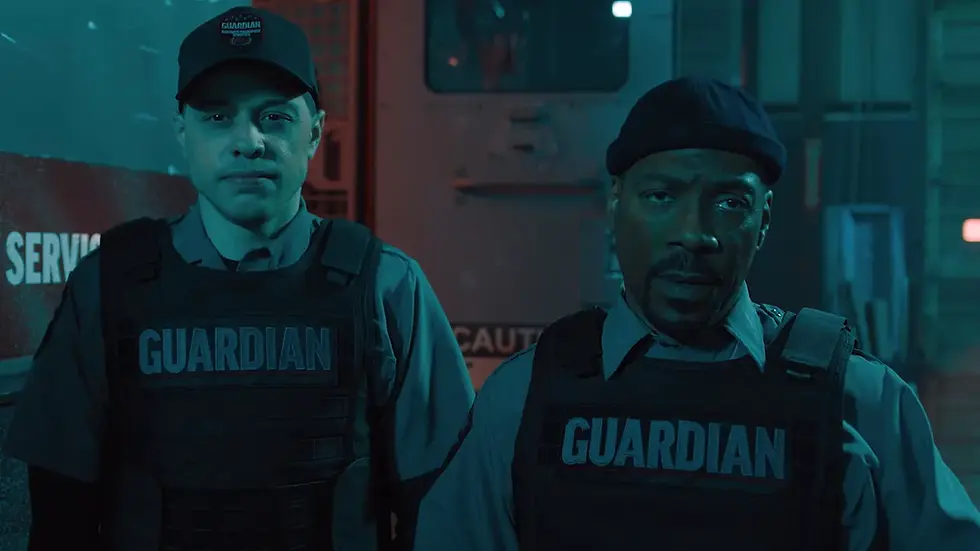Alien Earth Review: The Best New Sci-Fi Horror Series You Need to Watch
- Rachel

- Aug 9, 2025
- 4 min read

Just when you thought the Alien franchise had milled its last drop of xenomorph terror, Alien Earth comes along to remind you that humanity’s worst nightmare isn’t the monsters—it’s itself. FX and Hulu’s latest TV venture blasts the classic space horror onto our home turf and adds a fresh spin: synthetic kids, corporate greed, and alien creatures that make you seriously reconsider your life choices.
If you’re a fan of sci-fi horror with a side of biting social commentary wrapped in acid-blooded mayhem, this is your new obsession. Let’s break down what makes Alien Earth both a worthy addition and a wild experiment in franchise storytelling.
Alien Earth: Plot That’s Equal Parts Nightmare and Corporate Meltdown
Set two years before Ridley Scott’s iconic Alien (1979), the show’s premise is deceptively simple: The USCSS Maginot, a research vessel, crashes onto Earth’s soil—more specifically, on a heavily guarded Prodigy Corporation site. But don’t be fooled by the “research” label; Prodigy isn’t just dabbling in science, they’re playing god.
This crash unleashes a nightmare combo of xenomorphs and other alien horrors that were hiding in the wreckage. The stakes? Keeping the public in the dark and maintaining corporate control—because nothing screams future dystopia like mega-corporations owning everything, including your genetic code.
Synthetic Kids: The Lost Boys and the Real Horror
The show’s emotional center and MVP is Wendy—a terminally ill child whose consciousness has been uploaded into a synthetic adult body. Yes, that’s as unsettling as it sounds. Wendy is part of the “Lost Boys,” a group of kids trapped in artificial bodies thanks to Prodigy’s controversial tech. Watching them grapple with lost childhoods, identity crises, and homicidal tendencies is equal parts heartbreaking and terrifying.
This concept is pure gold, delivering a fresh philosophical punch about what it means to be human when your body is plastic and your memories are software. The Lost Boys aren't just background flavor—they drive much of the show’s emotional weight and moral ambiguity.
Meanwhile, Wendy’s brother Hermit is entangled in the corporate web, unaware that his sister is no longer “dead” but synthetically alive. This family drama adds depth, reminding us that underneath all the sci-fi trappings are very real human emotions.
Corporate Villains Who Could Give Weyland-Yutani a Run for Their Money

No Alien story is complete without a corporate villain, and Alien Earth serves up Boy Kavalier, a smug, brilliant CEO who treats human consciousness like an asset on a balance sheet. Kavalier embodies everything terrifying about unchecked capitalism: ruthless, cold, and utterly unconcerned with ethics.
His obsession with controlling alien tech and synthetic humans drives much of the tension. Watching him manipulate people like chess pieces is a darkly satisfying exercise in villainy. The show doesn’t shy away from painting its corporations as monsters in their own right.
Alien Horrors That Push Boundaries
Of course, no Alien review would be complete without talking about the xenomorphs and the new creatures this series introduces. The original chestbursters are here, but the show isn’t content to coast on nostalgia. Instead, it ups the ante with grotesque new alien species that test the limits of body horror.
One particularly memorable horror is a creature that invades eyeballs—a nasty surprise that’s sure to make you blink a little more cautiously. The practical effects combined with CGI create genuinely unsettling visuals that stick with you long after the credits roll.
But beyond scares, the aliens symbolize the uncontrollable consequences of humanity’s hubris—our attempts to weaponize nature invariably backfire, as they always do.
Themes That Cut Deep: Identity, Mortality, and the Price of Progress
Alien Earth isn’t just about the monsters; it’s about what those monsters say about us. At its core, the show explores transhumanism—the blurring lines between human and machine—and the ethical nightmares that come with trying to cheat death via synthetic bodies.
The Lost Boys embody this theme perfectly: kids who should be growing up naturally are instead trapped in robotic prisons, haunted by their pasts and the corporate interests that stole their futures. It’s a dark meditation on childhood lost to technology and the cold calculus of profit over people.
The series also doubles down on its critique of corporate power. Prodigy Corporation and its rivals are shown to be merciless entities willing to sacrifice anything and anyone for profit and control. The tension between human values and capitalist exploitation runs like acid through every episode.
Production Values and Atmosphere: Dark, Gritty, and Intense
FX’s investment shows. The production values rival big-budget cinema, with dark, claustrophobic sets that scream Alien nostalgia but still feel fresh. The lighting and sound design masterfully ratchet up tension, and the creature effects blend practical craftsmanship with digital finesse.
The show’s pacing can be uneven, occasionally juggling too many plot threads, but its atmospheric intensity keeps viewers hooked. The score mixes eerie synths with haunting motifs that underline the show’s themes of alienation and corporate dystopia.
Performances: A Mixed Bag with Standouts
Sydney Chandler as Wendy delivers a captivating performance, balancing vulnerability, rage, and childlike confusion in a synthetic body. She anchors the emotional core effectively. The supporting cast ranges from solid to occasionally caricatured—particularly the CEO archetype—but overall, the ensemble sells the show’s tense, paranoid mood.
Final Thoughts: A Bold, If Imperfect, Addition to the Alien Universe
Alien Earth isn’t flawless. It stumbles with pacing and occasionally overreaches with its philosophical musings. But it’s a bold expansion of the Alien mythos that smartly blends horror, sci-fi, and social commentary.
If you’re in for acid-blooded monsters, corporate backstabbing, and existential questions about what makes us human, this show delivers. It’s gruesome, thought-provoking, and definitely not for the faint of heart.
So, grab your popcorn, prepare for some nightmares, and maybe keep an eye on your own synthetic shadow—because in Alien Earth, the real horror might just be what we become.




Comments